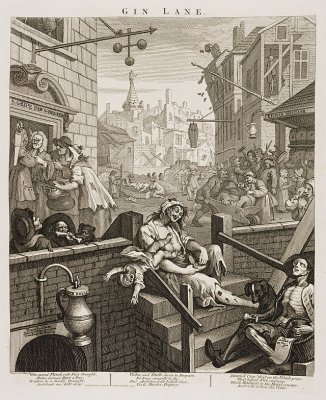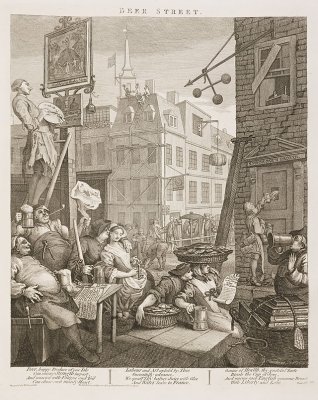LizzieMaine
Bartender
- Messages
- 34,189
- Location
- Where The Tourists Meet The Sea
The way Hogarth was using it, it is. A bit like G. K. Chesterton's comment about nationalism: "'My country, right or wrong,' is a thing that no patriot would think of saying except in a desperate case. It is like saying, 'My mother, drunk or sober.' ". Chesterton says that because the idea of a woman being drunk was seen as uniquely repellent; he would never have used "My father, drunk or sober". Hogarth was exploiting the same prejudice. There is no image in his work showing a man as such a bad father. Drunks, yes, but betrayers of children no. That's misogyny.
Ask the child of a drunken father, and she'll tell you. There are few greater betrayers of children. In the world where I grew up, a man who staggered out of a bar while his kids were hungry was the most disgusting of human scum. You wouldn't even call such a person a "man."





